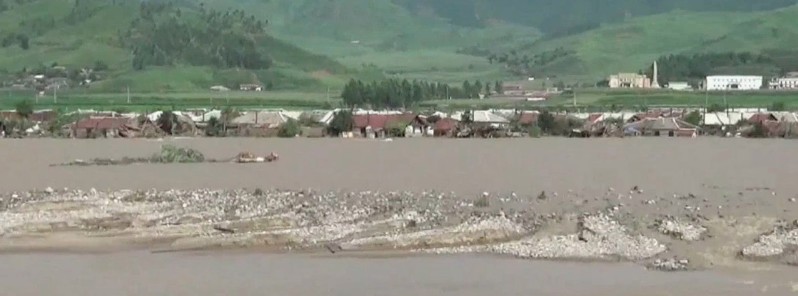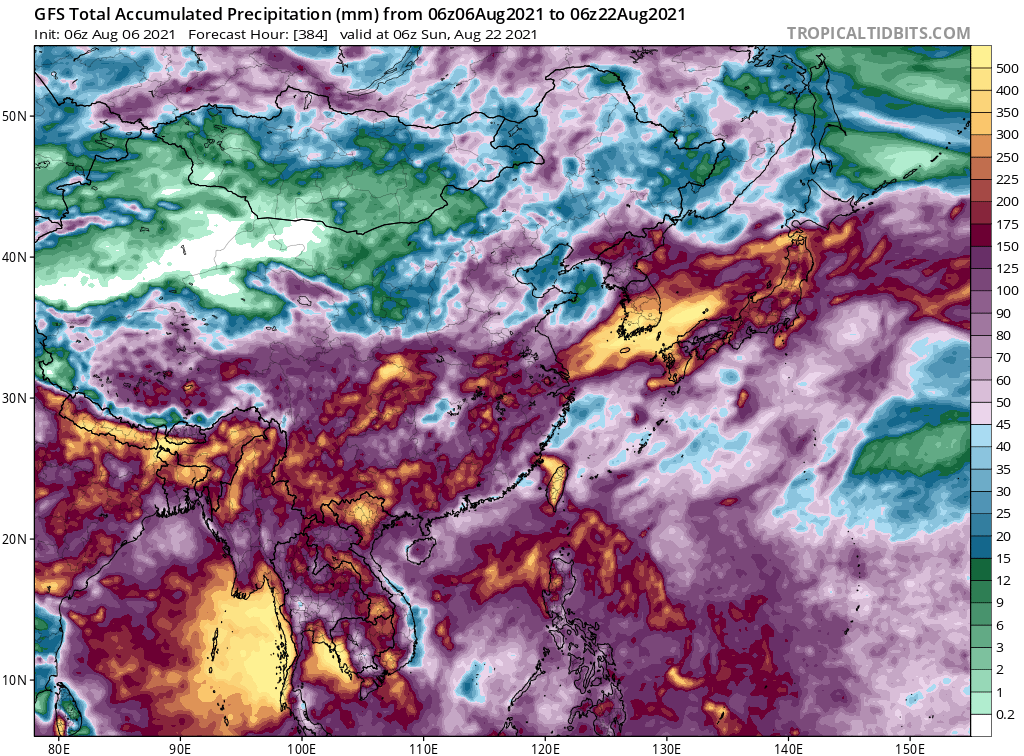Extremely heavy rains hit North Korea

Extremely heavy rains hit parts of coastal northeastern North Korea from August 1 to 3, 2021, resulting in widespread damage to homes, infrastructure, and agricultural fields.
According to North Korea's state broadcaster, heavy rains affecting the country's NE provinces of North and South Hamgyŏng since Sunday, August 1, 2021, caused rivers to overflow, damaging 1 170 homes, washing away hundreds of hectares of farmlands, destroying roads and bridges, and forcing the evacuation of 5 000 residents.
The worst affected were small towns along major rivers.
From 18:00 LT on August 1 to 19:00 LT on August 2, the average rainfall in South Hamgyŏng reached 113 mm (4.44 inches), while in some places it exceeded 300 mm (11.81 inches).
The town of Chongjin, Puryong county registered 583 mm (22.95 inches) between August 1 and 3 while Sinhung county near Hamhung registered 308 mm (12.12 inches). During the same period, the province of North Hamgyong registered more than 500 m (19.7 inches) of rain.
The average rainfall for the month of August in Hamhung, the capital of South Hamgyŏng and the second-largest city in North Korea, is 179.5 mm (7.06 inches). August is its second-wettest month after July with 211.9 mm (8.34 inches).
North Hamgyŏng's capital Chongjin receives an average rainfall of 194.8 mm (7.66 inches) in August, 160.8 mm (6.33 inches) in July, and 108 mm (4.25 inches) in September.
NK News analyzed satellite imagery provided by PlanetLabs and confirmed flooded homes, roads and broken bridges in Sinhung and Yonggwang counties near Hamhung.
Similar damage appeared at Toksan Airfield near Hamhung and in Hongwon county to the east, as well as just north of Chongjin.
There are no reports of casualties.
Read more about North Korean state TV confirming our reporting here: https://t.co/OuYu0HncGq
— Colin Zwirko (@ColinZwirko) August 6, 2021
Heavy rains will continue affecting the country into September.

The event follows a crop-damaging heatwave and drought in July that may threaten upcoming harvests, further deepening the country's food crisis.
Featured image: KCTV (stillshot)

Commenting rules and guidelines
We value the thoughts and opinions of our readers and welcome healthy discussions on our website. In order to maintain a respectful and positive community, we ask that all commenters follow these rules.